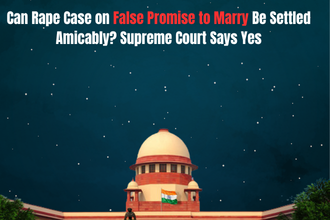The results of the Common Law Admission Test (CLAT) 2025 for undergraduate courses have come under the scanner as the Delhi High Court recently reserved its judgment in a series of petitions filed by aggrieved candidates. These petitions challenge the validity and accuracy of at least 15 questions in the CLAT 2025 UG paper, raising concerns about procedural fairness and the integrity of the exam conducted by the Consortium of National Law Universities (NLUs).
In this article, we analyze the key issues raised, the response of the Consortium, and what lies ahead for CLAT 2025 aspirants.
Background: What Is CLAT 2025 and Why the Controversy?
The Common Law Admission Test (CLAT) is the national-level entrance exam conducted annually for admission to undergraduate and postgraduate law programs across various National Law Universities (NLUs) in India. Thousands of law aspirants compete each year for a limited number of seats in these prestigious institutions.
CLAT 2025, conducted earlier this year, became controversial soon after the declaration of results. Multiple candidates reported discrepancies in the answer key, alleging that at least 15 questions and/or their corresponding answers were incorrect, ambiguous, or poorly framed. Dissatisfied with the Consortium’s response to these objections, a group of aspirants approached the Delhi High Court, seeking intervention and correction of the flawed results.
The Legal Challenge: Petitions Filed Before the Delhi High Court
Several petitions were filed jointly and individually by CLAT 2025 UG candidates. These petitions primarily allege:
- Erroneous answer keys, which allegedly led to incorrect evaluation.
- Lack of transparency in the grievance redressal mechanism.
- Arbitrary rejection of objections raised by students.
- Disproportionate impact on ranks, potentially altering admissions to top NLUs.
The candidates argued that the mistakes in the CLAT 2025 UG paper had a direct and significant impact on their All India Ranks (AIR) and, consequently, their chances of securing admission to their preferred NLUs.
The 15 Disputed Questions: What’s at Stake?
Although the specific content of all 15 disputed questions has not been officially released due to the Consortium’s confidentiality protocols, sources suggest that the disputed questions include:
- Ambiguous comprehension-based passages.
- Incorrect options in logical reasoning sections.
- Factual inaccuracies in general knowledge and legal aptitude questions.
- Typographical errors affecting the understanding of some questions.
Candidates contend that even a single erroneous question can affect ranks by hundreds, especially in a highly competitive exam like CLAT, where each mark counts.
Consortium of NLUs: Response and Justification
The Consortium of National Law Universities, which oversees the CLAT examination process, has defended its actions. In response to the petitions, the Consortium submitted that:
- The answer key was reviewed by an expert committee.
- Necessary corrections were made based on valid objections.
- The final answer key was published transparently, and no further errors exist.
- Judicial intervention would disrupt the admissions schedule.
The Consortium also warned that altering the results at this stage would create administrative chaos and potentially derail the entire academic calendar for NLUs.
Delhi High Court Proceedings: Key Developments
During the hearings, the Delhi High Court bench comprising Justice C Hari Shankar and Justice Manmeet Pritam Singh Arora heard detailed arguments from both sides. The petitioners highlighted how the Consortium failed to address crucial errors and did not provide a fair or transparent appeals process.
The Court has now reserved its verdict, signaling that a well-reasoned judgment is in the pipeline. Observers expect that the Court could take a balanced approach — either ordering a reevaluation of certain answers, recommending grace marks, or mandating an expert re-review.
What Happens Next? Possible Scenarios for CLAT 2025 UG Candidates
Depending on the Delhi High Court’s final ruling, the following outcomes are possible:
- Reevaluation of the disputed questions, which could alter rankings and admissions.
- Awarding of grace marks to all candidates for ambiguous questions.
- Dismissal of the petitions, upholding the current results as final.
- Recommendations for procedural reform in future CLAT exams, even if no change is made this year.
In any case, the decision will likely set a precedent for future entrance exams and enhance accountability in the process.
Implications for Law Aspirants and NLUs
The controversy around CLAT 2025 has raised serious questions about:
- Exam design and vetting procedures adopted by the Consortium.
- Transparency in grievance redressal during result challenges.
- Trustworthiness of national-level competitive exams.
For the National Law Universities, this legal dispute could delay the admission process, affecting the academic year schedule and possibly requiring revised counseling rounds.
Conclusion: A Litmus Test for Exam Integrity in India
The Delhi High Court’s pending judgment in the CLAT 2025 UG case is being closely watched by thousands of law aspirants, legal educators, and policymakers. At stake is not just the future of this year’s candidates, but also the credibility of CLAT as a gateway to premier legal education in India.
The case highlights the urgent need for transparent, fair, and accountable examination systems, particularly when aspirants’ futures hinge on a few marks. As India continues to place greater emphasis on merit-based admissions, it is imperative that examination bodies uphold the highest standards of accuracy and integrity.
Stay tuned for the Delhi High Court’s final decision, which is expected to have far-reaching consequences for CLAT 2025 and beyond.


